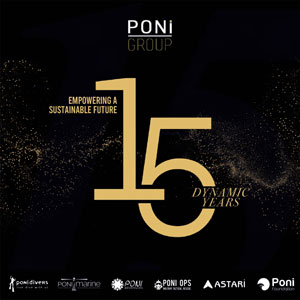
ANN/THE STAR – As World Diabetes Day passed on November 14, we were once again reminded of the pressing need to explore the psychological factors that shape our eating habits and, ultimately, our health.
In Malaysia, where diabetes is a growing concern, many perceive healthy eating as an expensive and arduous endeavour, leading to dietary choices that may harm long-term well-being.
But the challenge is not just about the food we consume; it’s also about the mental barriers that affect our relationship with what we eat.
These perceptions complicate the management of conditions like diabetes, often hindering individuals from making lasting, positive changes.
As the fattest country in Southeast Asia, have we considered how our culture might contribute to this issue?
Cultural influences play a significant role in shaping food preferences. Our traditional dishes, often rich in flavour and heritage, can overshadow healthier options, creating a deep connection between food and our identity.
Nothing unites Malaysians faster than an outsider insulting our beloved cuisine!
Festivals like Hari Raya and Chinese New Year celebrate indulgence, giving us a sense of licence to indulge in traditional foods.
It’s easy to see how such occasions, tied to celebration and togetherness, may lead to unhealthy eating habits that persist year-round.
This cultural attachment to food can make it especially difficult for diabetic or prediabetic individuals to adopt healthier habits. Many fear that this would mean a life of bland, tasteless meals devoid of the flavours they love.
But perhaps it’s time to rethink this. Instead of overhauling diets drastically, we can start with small, manageable changes.
Why not ask for reduced sugar in our drinks? Or instead of cutting out rice entirely, we can try reducing the portion and filling up with more vegetables. And, perhaps most importantly, we could begin with just five minutes of walking a day.
These incremental steps are often more sustainable than dramatic shifts. Over time, our bodies—and our taste buds—will adapt, slowly embracing healthier habits without feeling deprived.
This is where psychology comes into play: using small changes to break free from ingrained patterns and move towards a healthier lifestyle, ultimately tackling Malaysia’s obesity problem one step at a time.
The Strain of Work-Life Balance
In our fast-paced, work-centric society, poor eating habits are often a by-product of the modern work-life struggle. With long hours, high demands, and little time to cook, many turn to fast food, processed snacks, or whatever is most convenient.
In these moments, unhealthy options often win out, making it all the more difficult to prioritise proper nutrition.
Stress, fatigue, and demotivation all contribute to this cycle, leaving little energy or inclination to exercise or focus on well-being.
With work claiming so much of our time, it’s important to find creative ways to integrate healthy choices into our routines.
Small actions, like taking the stairs instead of the lift, organising a weekly Zumba or badminton session with colleagues, or bringing healthier snacks such as nuts or fruit to the office, can make a world of difference.
However, stress and burnout, which are common workplace struggles, can also lead to emotional eating, increasing sugar intake and impacting overall health. Being mindful of how work-related stress influences lifestyle choices is key to striking a healthier balance.
Turning Healthy Eating into a Social Activity
One way to make the pursuit of better health feel less burdensome is to turn it into a social activity.
Meal planning over the weekend or turning grocery shopping into an enjoyable outing with friends or family can transform these mundane tasks into something fun.
This sense of community and support can help keep us motivated and committed to our health goals, turning healthy eating into something to be celebrated, not dreaded.
Empowering Ourselves Through Knowledge
At the heart of preventing and managing diabetes is a holistic understanding of how mental health, cultural influences, and lifestyle intersect. By acknowledging these factors, we can empower ourselves—and those around us—to make informed, healthier choices.
Education and awareness are crucial. It’s vital that we inform communities not only about the physical impacts of diabetes but also about the mental and emotional challenges that accompany it.
By providing practical strategies for healthier eating, we can foster an environment that promotes well-being while embracing cultural diversity.
Ultimately, prevention is power. By recognising the complexities at play, we can work together to combat diabetes and build a healthier future—for ourselves and future generations. – Michelle Chong Hui Yi






